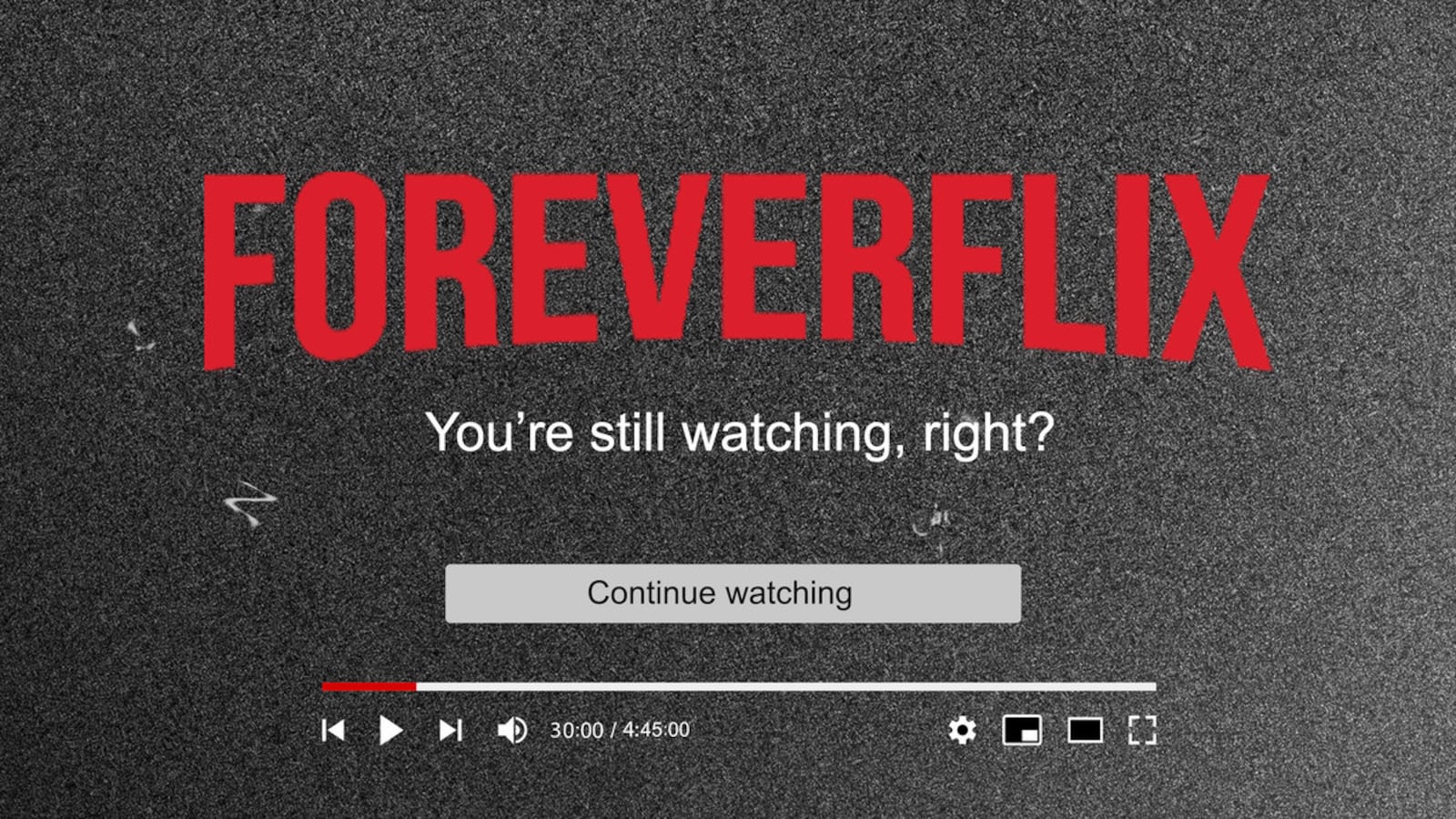Once upon a time, long ago, before the dawn of streaming forever altered television consumption, there was something called a commercial break. During a commercial break, whatever show you were watching–American Idol or Dancing with the Stars, probably–would abruptly pause and you would be subjected to a few minutes of advertisements. To allow time for these ads, no program would be longer than 40 to 45 minutes. We had no idea how good we had it back then.
It’s a scientific fact that the perfect duration for one episode of a television show is around 45 minutes, which is why reality TV is the superior genre.
I famously stopped watching Game of Thrones, a universally lauded and beloved series, around Season 3 because I found the episodes to be interminable. Though I typically enjoyed it when I did tune in, it was rare that I was in the mood to watch a full hour of Lily Allen’s brother being tortured.
Today, however, with the prevalence of ad-free streaming platforms like Netflix and HBO Max, it has become the norm for TV dramas to run an hour or more in length. Thanks a lot, Ted Sarandos!
When the episode runtimes for Season 4 of Stranger Things were announced last month, critics and Twitter users alike balked. Every episode would be comfortably over an hour long. And if that weren’t disturbing enough, the season finale would clock in at around two and a half hours. The horror! That is simply too much Stranger Things. That’s too many consecutive minutes of watching teens with bad haircuts finish each other’s sentences.
Most movies shouldn’t even be two and a half hours long, in my humble opinion, but that’s an article for another day.
I like Stranger Things, and I even like the new season. There are aspects of it that are genuinely great, particularly the performances of Sadie Sink and Millie Bobby Brown. The ’80s nostalgia is still fun. Split level houses! Roller rinks! A perpetually stoned Spicoli-esque pizza delivery guy! And the visual effects are extremely cool and spooky, too, as they should be considering each episode cost a casual $30 million to make.
Perhaps best of all, the release of the new episodes indirectly resulted in the world being blessed with a divine Winona Ryder ad campaign for Marc Jacobs, the very designer whose goods she once iconically shoplifted from Saks Fifth Avenue.
But at no point throughout the season does the show convincingly make the case that its newly inflated episodes are a necessary improvement. It certainly never proves that 20 extra minutes of Steve whining about hanging out with kids (you don’t have to, dude!) are worth the personal cost that is my boyfriend falling asleep halfway through every episode, annoyingly requiring me to summarize what he missed the next day.
Whereas if Season 4 of Stranger Things were tighter and more focused, it would almost certainly be better for it. It distractingly jumps between subplots that are all set in different geographic locations. There’s Dustin, Max, and co. fighting the Vecna in Hawkins, Eleven and the Byers brothers out in California, Hopper plotting to escape a Russian prison camp, and Joyce and Murray in Alaska trying to orchestrate Hopper’s rescue. In other words, it’s too ambitious for its own good.

Stranger Things
Courtesy of NetflixNot only are the episodes of Stranger Things exorbitantly longer this season, but there are more of them, released in two different “volumes.” The first seven episodes came out over Memorial Day Weekend, and the final two will be unveiled in July. The reason for the split is not artistic or plot-related, but rather that the Duffer Brothers just couldn’t finish the show in time. Maybe–and I’m just spit-balling here–they would have been able to meet their deadline if they made the episodes shorter.
Another recent show that could have benefited from major editing is Inventing Anna, Shonda Rhimes’ adaptation of the story of socialite scammer Anna Delvey.
There are a lot of things wrong with Inventing Anna, which received mediocre reviews. For example, the show’s writers seemed to have an inexplicable vendetta against one of Delvey’s real-life victims, Rachel Deloache Williams, whom they portrayed as a social climbing joke. It also focused way too much on Anna Chlumsky’s reporter character, committing the classic TV sin of horrendously misrepresenting the job of journalism. Why do, like, six other New York magazine reporters have nothing to do besides help Vivian with her Anna Delvey story?
Most egregious of all, though, is the runtime of the episodes. Each of Inventing Anna’s nine episodes runs at or above one hour in length. Two are more than 70 minutes long and the finale is an utterly gratuitous 82 minutes. If no good show should be more than an hour long, then 82 minutes of a bad show is borderline criminal. Julia Garner’s unplaceable fake accent becomes headache-inducing after a half hour, anyway. While many things about Inventing Anna should have been done differently to make it a stronger series, another pass in the cutting room would have been the simplest fix.
Euphoria is another prestige television series with episodes verging on overly bloated, albeit for different reasons. When season two of the hit HBO show premiered early this year, fans and critics noted that the new episodes were grittier than anything in the first season, leaning harder into psychological terror.

Euphoria
Courtesy of HBOViewers would take to Twitter every Sunday to recount the visceral anxiety they felt while watching that week’s installment. Usually landing somewhere between 50 and 60 minutes, the episodes in the sophomore season of Euphoria are not as long as those of Stranger Things or Inventing Anna. But given the teen drug drama’s relentlessly dark nature, even 55 minutes starts to feel like too much.
In our current era of Too Much TV, it almost feels as though a new drama series with marathon-length episodes premieres weekly.
Last month, for instance, HBO debuted The Staircase, a true crime show based on the French documentary of the same name about the trial of Michael Peterson. Starring Colin Firth and an excellent Toni Colette, The Staircase starts off compellingly, but begins to fizzle around the fifth episode—and unnecessarily long runtimes could be to blame. Like, what was the narrative reason for including so many scenes of Colin Firth bench-pressing in the prison yard?
FX’s Under the Banner of Heaven also suffers the same affliction. Not even the presence of cutie Andrew Garfield is enough to justify this week’s hour-and-a-half-long finale.
Now, there may be people out there inclined to point out that I regularly sit on my couch for three straight hours watching several episodes of The Real Housewives of Beverly Hills in a row. To that I say, mind your own business, thank you very much! My thesis here is about pacing and storytelling, both of which the editors over at Bravo nail time and time again.






